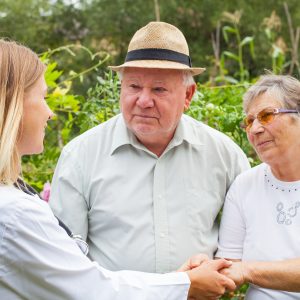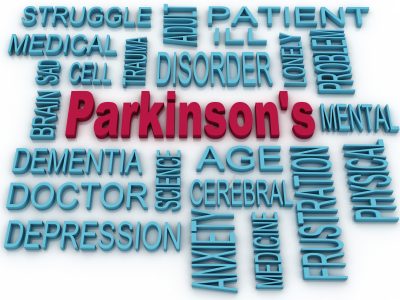
April marks Parkinson’s Awareness Month and the theme the Parkinson’s Foundation has chosen is #KnowMorePD to help elevate the public’s awareness of the disease and to share the resources available to those who are diagnosed with PD and their families
Parkinsons’s Disease (PD) is a complex movement disorder with symptoms that vary from person to person. Some of these symptoms may include tremors, slurred speech, a masked face, slow movement, and unsteady gait. Because PD is largely misunderstood by the general public and even healthcare professionals, it’s often frightening to see a person struggle with these symptoms. And when people don’t understand what is happening, they generally react by becoming fearful or avoiding that person.
My mother’s journey with PD was one that she would often describe as life on a roller coaster. One day, she would feel energetic and would go about her activities with ease, and the next day, exhaustion would overtake her, making the simplest tasks a monumental feet.
Along with the physical symptoms that others would see (and not understand), such as slowness of movement and unsteady gait, PD can wreak havoc on the inside. My mother, like others living with PD often struggled with depression, ill side effects from medications that are constantly in need of adjustment, and feeling self-conscious for unexplained physical movements. While PD can be managed with medications, it is a disease that progresses, so living with the unknown of what will happen to body and mind can lead to a constant fear of tomorrow.
As her caregiver, I too felt her emotions, because that is what caregivers do – take on the emotions of those they love. So that ‘roller coaster’ was a ride we both shared. It’s so very important for persons who are diagnosed with PD to seek education, resources and support – for themselves and their care partners and families. With education comes empowerment, and with support comes the community of others to help with knowing you are not alone.
While there is so much advancement being done to treat PD and research that will hopefully lead to cure, we must also focus our efforts on elevating our awareness, education, resources and support for this mysterious and challenging disease. Please support the work of the many national organizations who are working tirelessly to bring an end to PD, and to your local chapters and community organizations who help bring awareness and education to people like my mom and me who journeyed together in living with Parkinson’s Disease.
Pam Brandon is President/Founder of AGE-u-cate Training Institute, a global organization dedicated to supporting aging services providers with caregiver training to improve the quality of life for older adults.
 I was privileged to speak yesterday to the Dallas Area Parkinson’s Society (DAPS) about how care partners can embrace wellness and joy. For persons living with Parkinson’s Disease and other neurological conditions, finding wellness and joy in everyday life can be challenging and elusive at best. I know this first-hand, as my mother lived with Parkinson’s Disease (PD). Speaking from experience as her partner in this journey, my words of wisdom for embracing wellness and joy encompassed some simple steps.
I was privileged to speak yesterday to the Dallas Area Parkinson’s Society (DAPS) about how care partners can embrace wellness and joy. For persons living with Parkinson’s Disease and other neurological conditions, finding wellness and joy in everyday life can be challenging and elusive at best. I know this first-hand, as my mother lived with Parkinson’s Disease (PD). Speaking from experience as her partner in this journey, my words of wisdom for embracing wellness and joy encompassed some simple steps. Eldercare is becoming more about caring for those with dementia. Because our fastest growing segment of the population are those 85 and older, it correlates with the rise in people living with dementia. In fact, one in three people age 85 and older are living with some level of dementia. There are over 1 million Americans living with Parkinson’s Disease and over 10 million worldwide. This number is also rising with the increase in longevity.
Eldercare is becoming more about caring for those with dementia. Because our fastest growing segment of the population are those 85 and older, it correlates with the rise in people living with dementia. In fact, one in three people age 85 and older are living with some level of dementia. There are over 1 million Americans living with Parkinson’s Disease and over 10 million worldwide. This number is also rising with the increase in longevity.